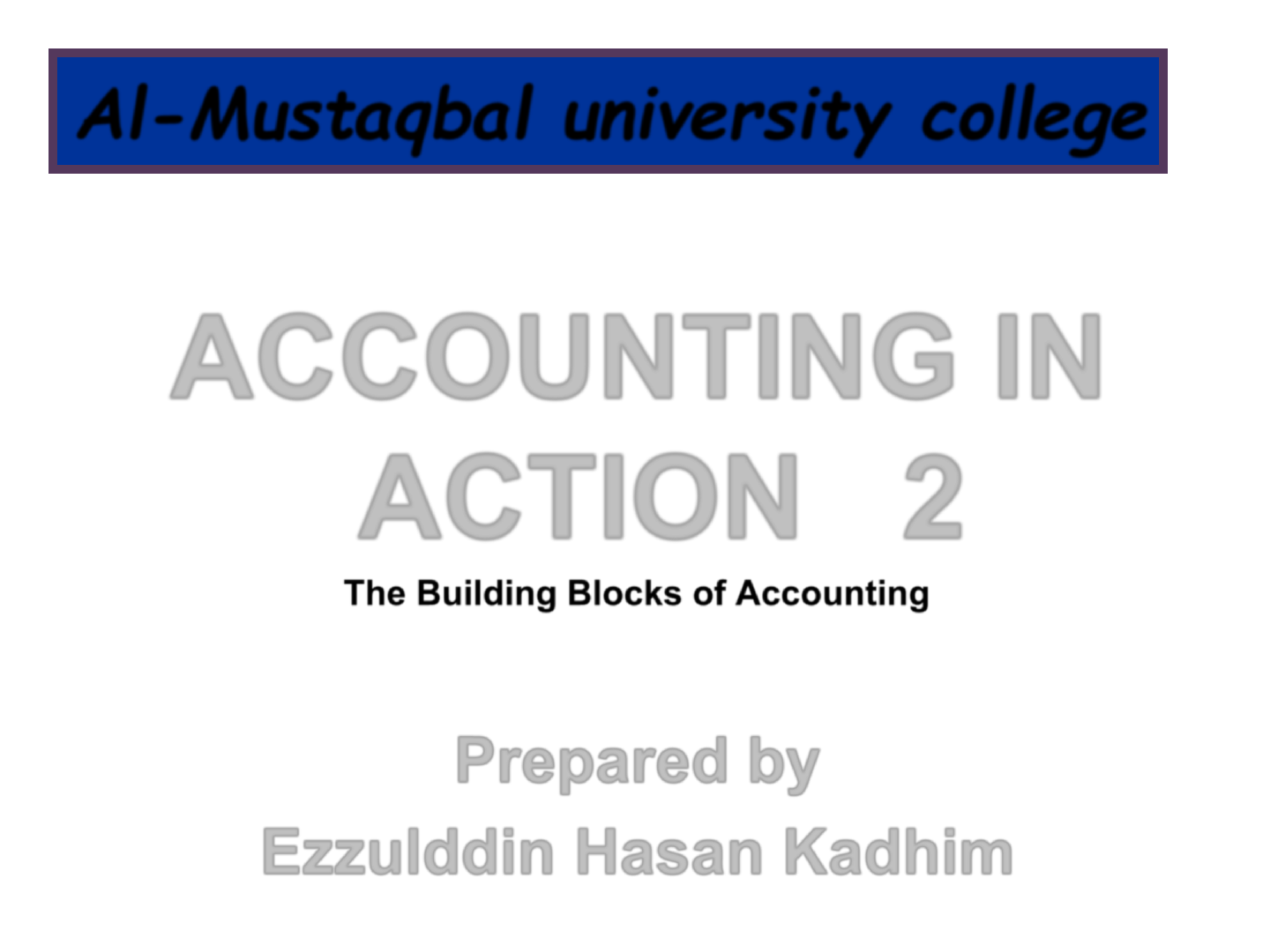
Chapter
1-1
Al-Mustaqbal university college
ACCOUNTING IN
ACTION 2
The Building Blocks of Accounting
Prepared by
Ezzulddin Hasan Kadhim
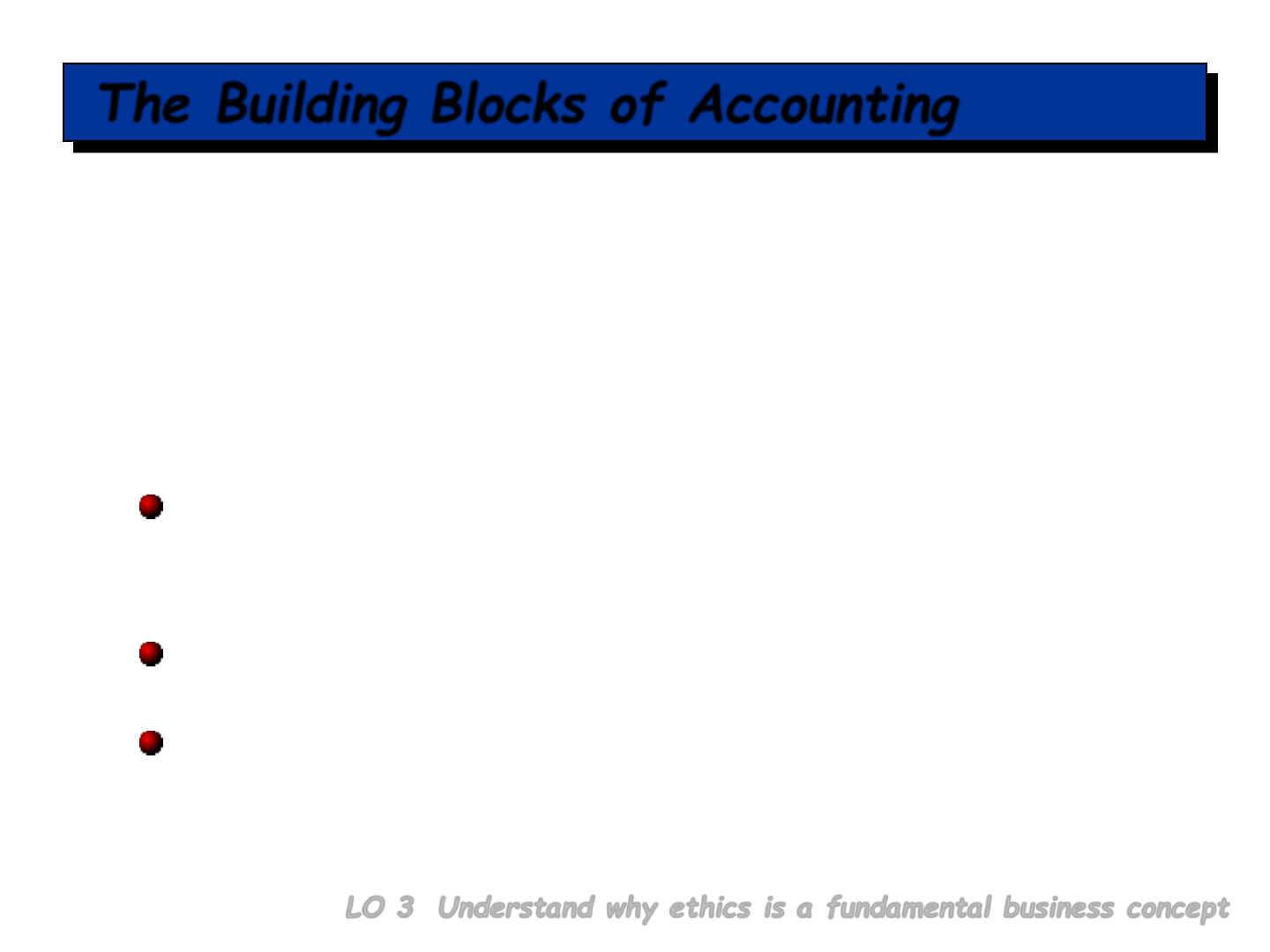
Chapter
1-2
The Building Blocks of Accounting
Ethics In Financial Reporting
LO 3 Understand why ethics is a fundamental business concept.
Standards of conduct by which one’s actions are
judged as right or wrong, honest or dishonest, fair or
not fair, are Ethics.
Recent financial scandals include: Enron,
WorldCom, HealthSouth, AIG, and others.
Congress passedSarbanes-Oxley Act of 2002.
Effective financial reporting depends on sound
ethical behavior.
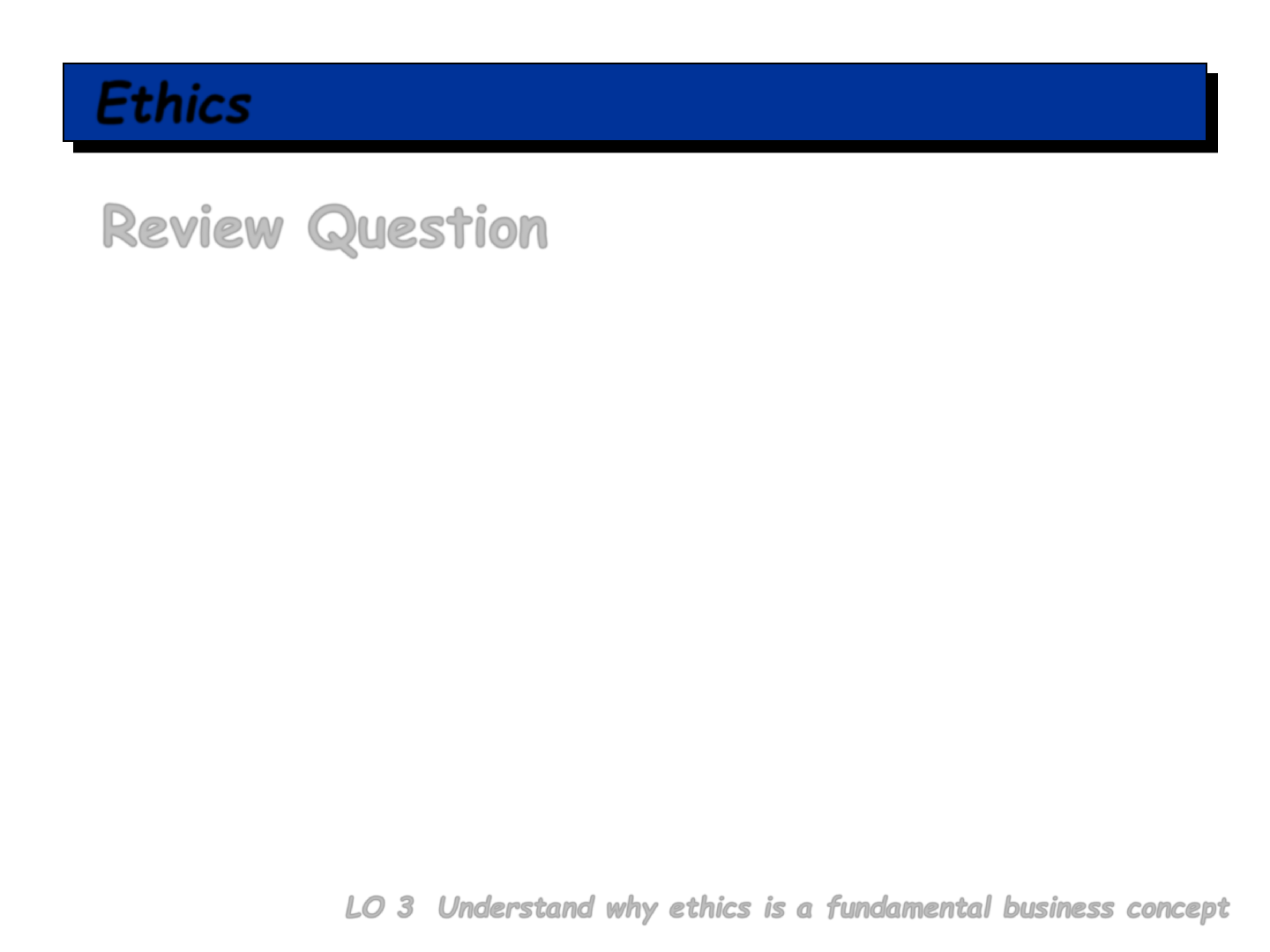
Chapter
1-3
Ethics are the standards of conduct by which one's
actions are judged as:
a. right or wrong.
b. honest or dishonest.
c. fair or not fair.
d. all of these options.
Review Question
Ethics
LO 3 Understand why ethics is a fundamental business concept.
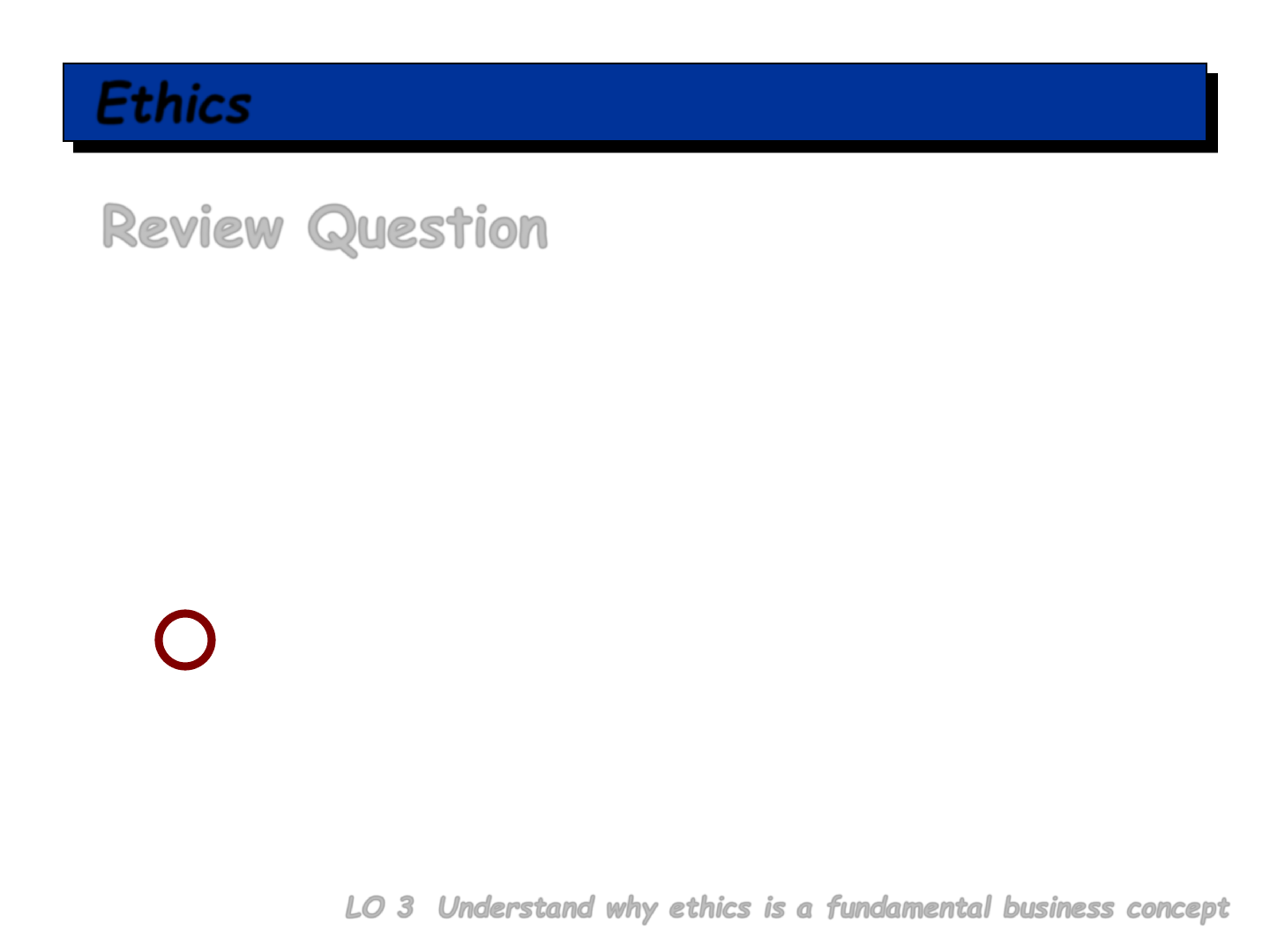
Chapter
1-4
Ethics are the standards of conduct by which one's
actions are judged as:
a. right or wrong.
b. honest or dishonest.
c. fair or not fair.
d. all of these options.
Review Question
Ethics
LO 3 Understand why ethics is a fundamental business concept.
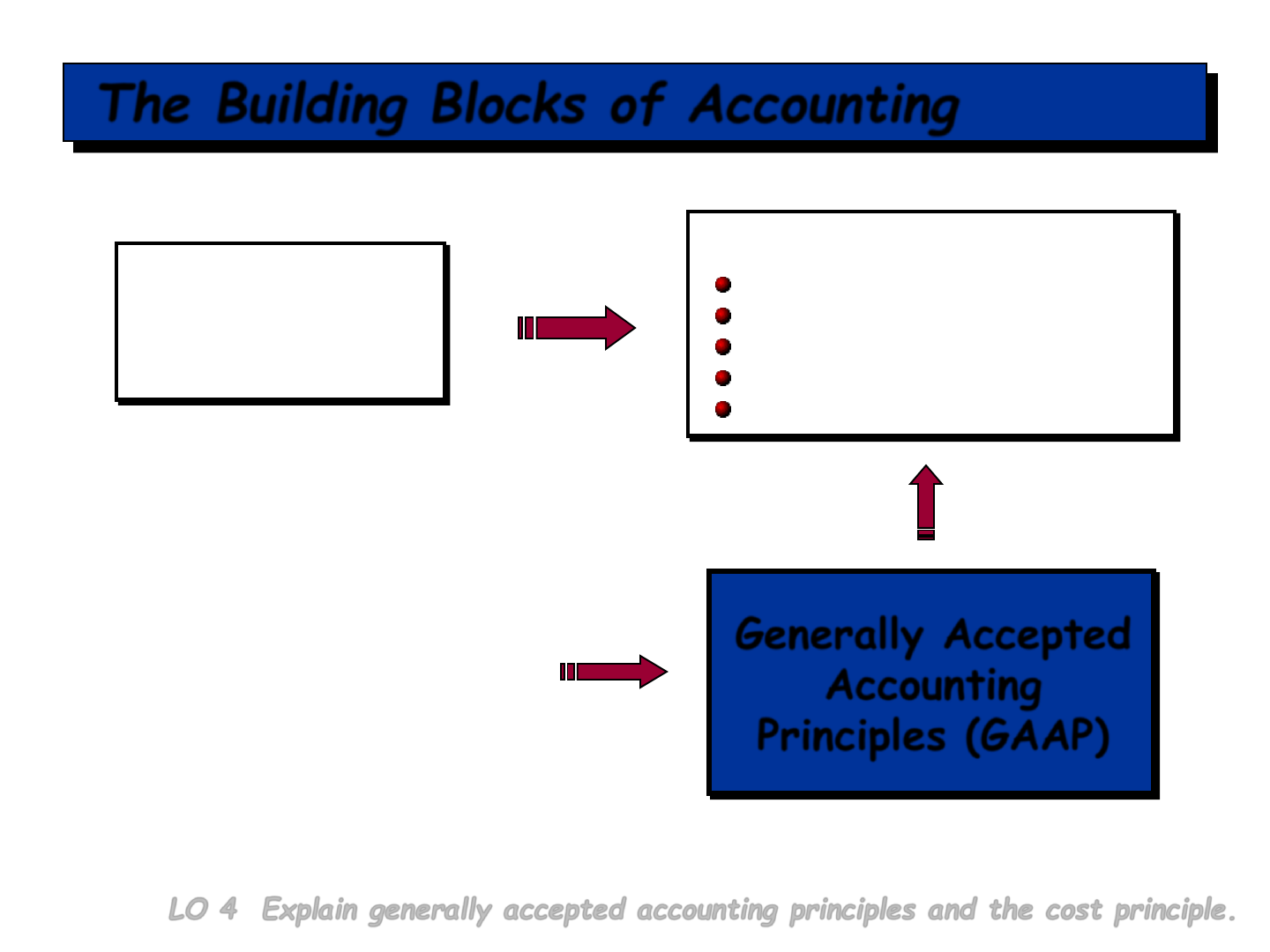
Chapter
1-5
Various users
need financial
information
The accounting profession
has attempted to develop
a set of standards that
are generally accepted
and universally practiced.
Financial Statements
Balance Sheet
Income Statement
Statement of Owner’s Equity
Statement of Cash Flows
Note Disclosure
Generally Accepted
Accounting
Principles (GAAP)
The Building Blocks of Accounting
LO 4 Explain generally accepted accounting principles and the cost principle.
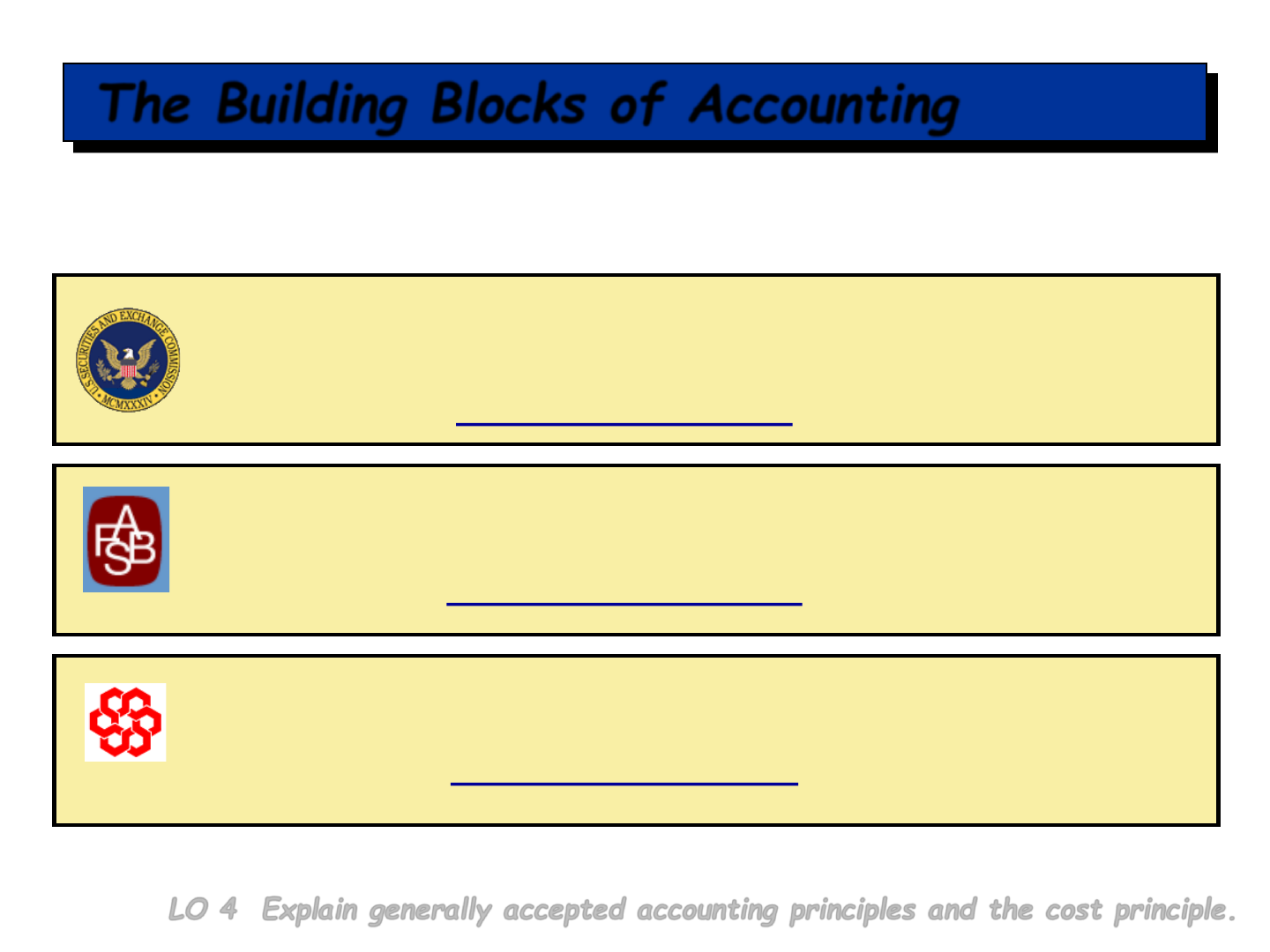
Chapter
1-6
Organizations Involved in Standard Setting:
Securities and Exchange Commission (SEC)
Financial Accounting Standards Board (FASB)
International Accounting Standards Board
(IASB)
LO 4 Explain generally accepted accounting principles and the cost principle.
The Building Blocks of Accounting
http://www.fasb.org/
http://www.sec.gov/
http://www.iasb.org/
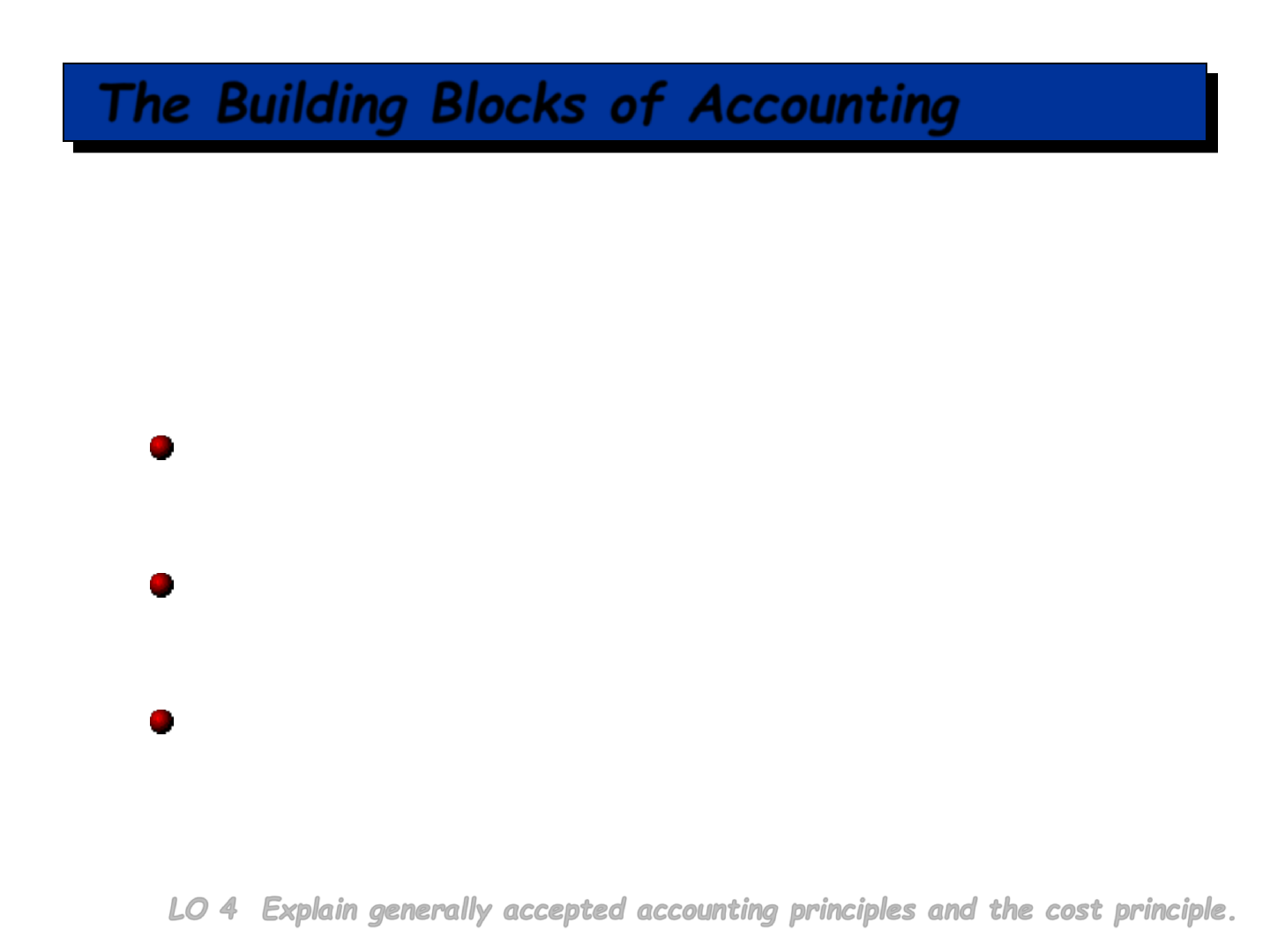
Chapter
1-7
Cost Principle (Historical) – dictates that companies
record assets at their cost.
Issues:
Reported at cost when purchased and also over the
time the asset is held.
Cost easily verified, whereas market value is often
subjective.
Fair value information may be more useful.
The Building Blocks of Accounting
LO 4 Explain generally accepted accounting principles and the cost principle.
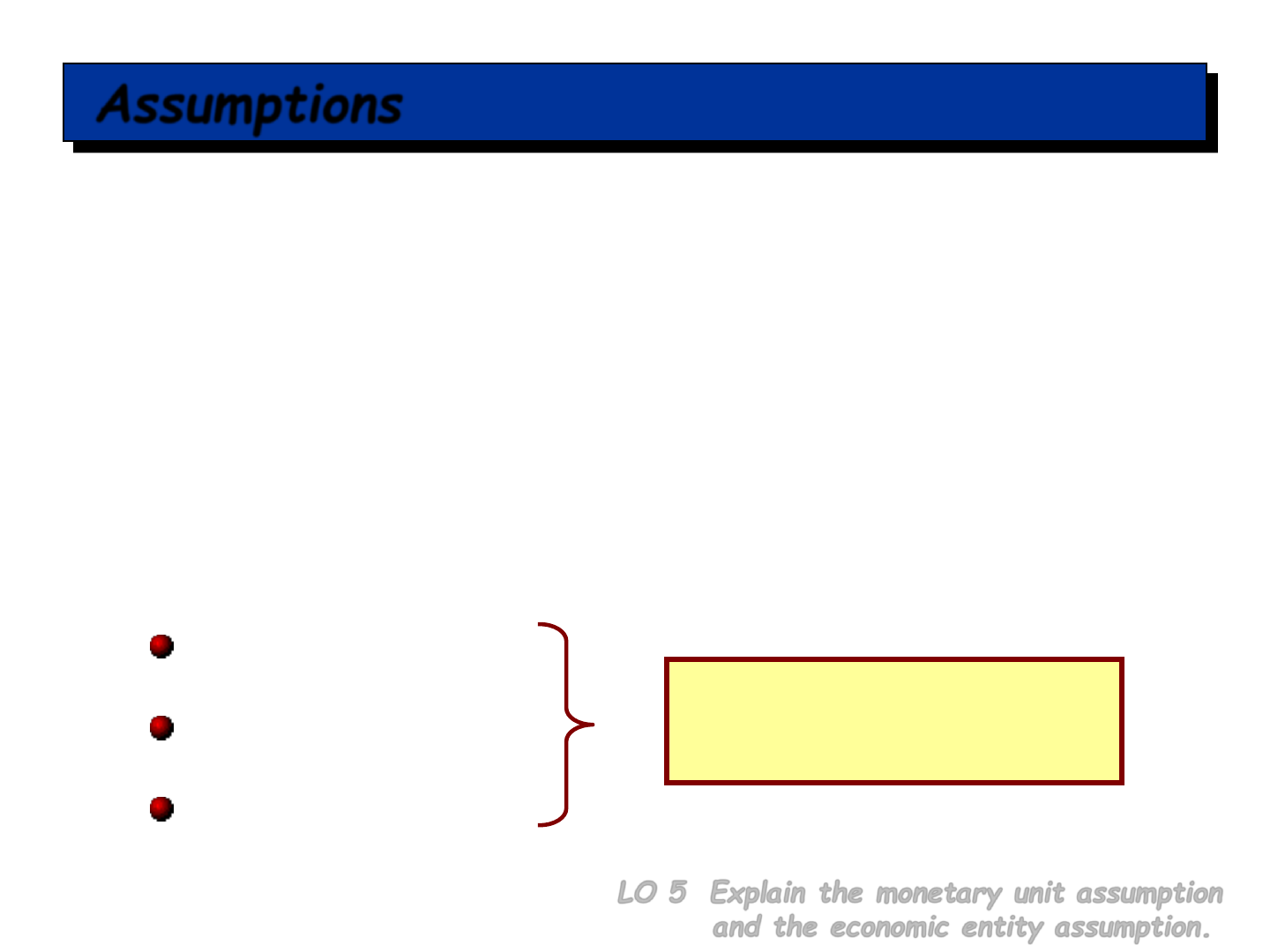
Chapter
1-8
Monetary Unit Assumption – include in the
accounting records only transaction data that can be
expressed in terms of money.
Economic Entity Assumption – requires that
activities of the entity be kept separate and distinct
from the activities of its owner and all other economic
entities.
Proprietorship.
Partnership.
Corporation.
Assumptions
LO 5 Explain the monetary unit assumption
and the economic entity assumption.
Forms of
Business Ownership
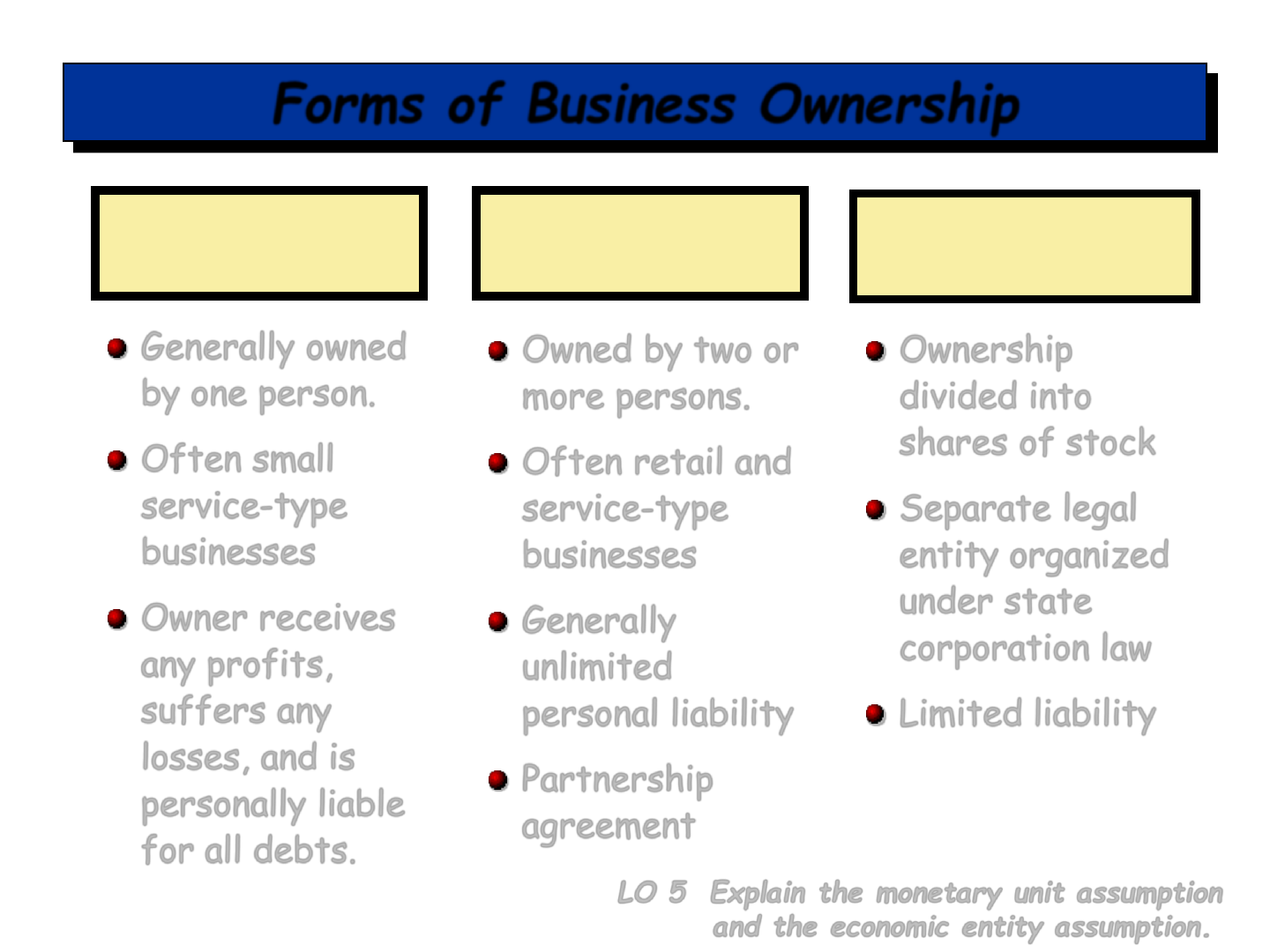
Chapter
1-9
Proprietorship Partnership
Corporation
Owned by two or
more persons.
Often retail and
service-type
businesses
Generally
unlimited
personal liability
Partnership
agreement
Ownership
divided into
shares of stock
Separate legal
entity organized
under state
corporation law
Limited liability
Forms of Business Ownership
Generally owned
by one person.
Often small
service-type
businesses
Owner receives
any profits,
suffers any
losses, and is
personally liable
for all debts.
LO 5 Explain the monetary unit assumption
and the economic entity assumption.
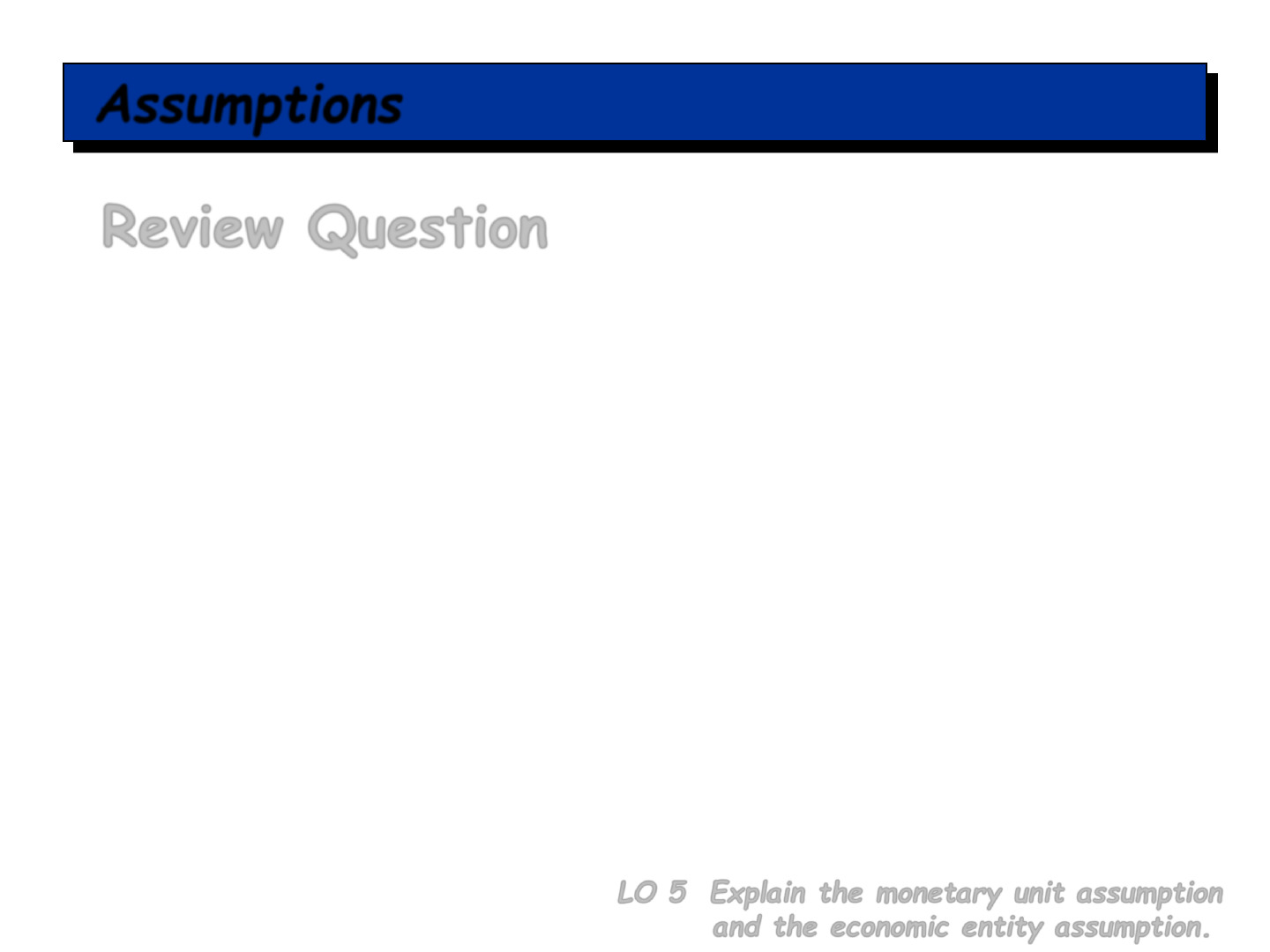
Chapter
1-10
Combining the activities of Kellogg and General
Mills would violate the
a. cost principle.
b. economic entity assumption.
c. monetary unit assumption.
d. ethics principle.
Assumptions
LO 5 Explain the monetary unit assumption
and the economic entity assumption.
Review Question
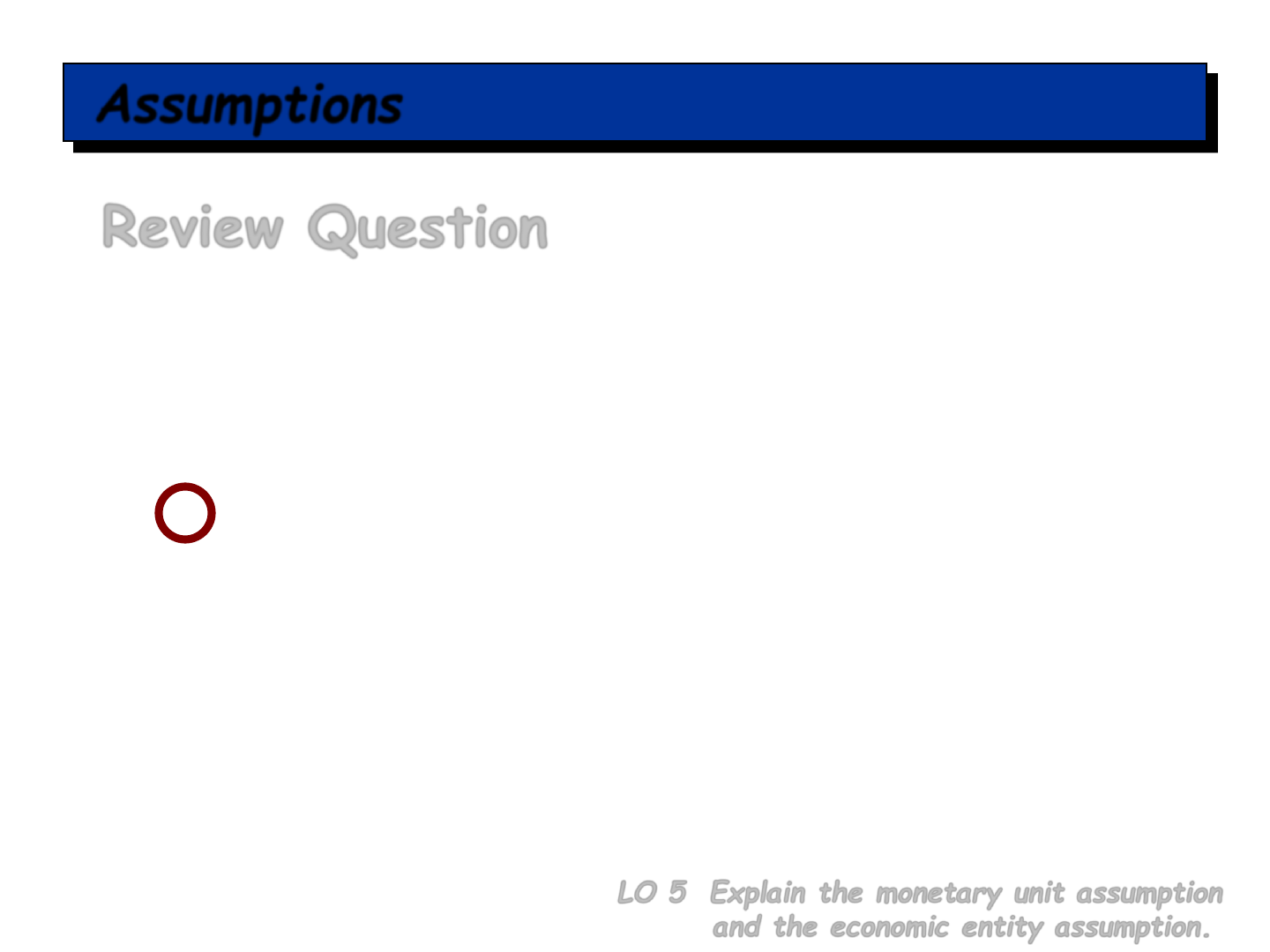
Chapter
1-11
Combining the activities of Kellogg and General
Mills would violate the
a. cost principle.
b. economic entity assumption.
c. monetary unit assumption.
d. ethics principle.
Assumptions
LO 5 Explain the monetary unit assumption
and the economic entity assumption.
Review Question
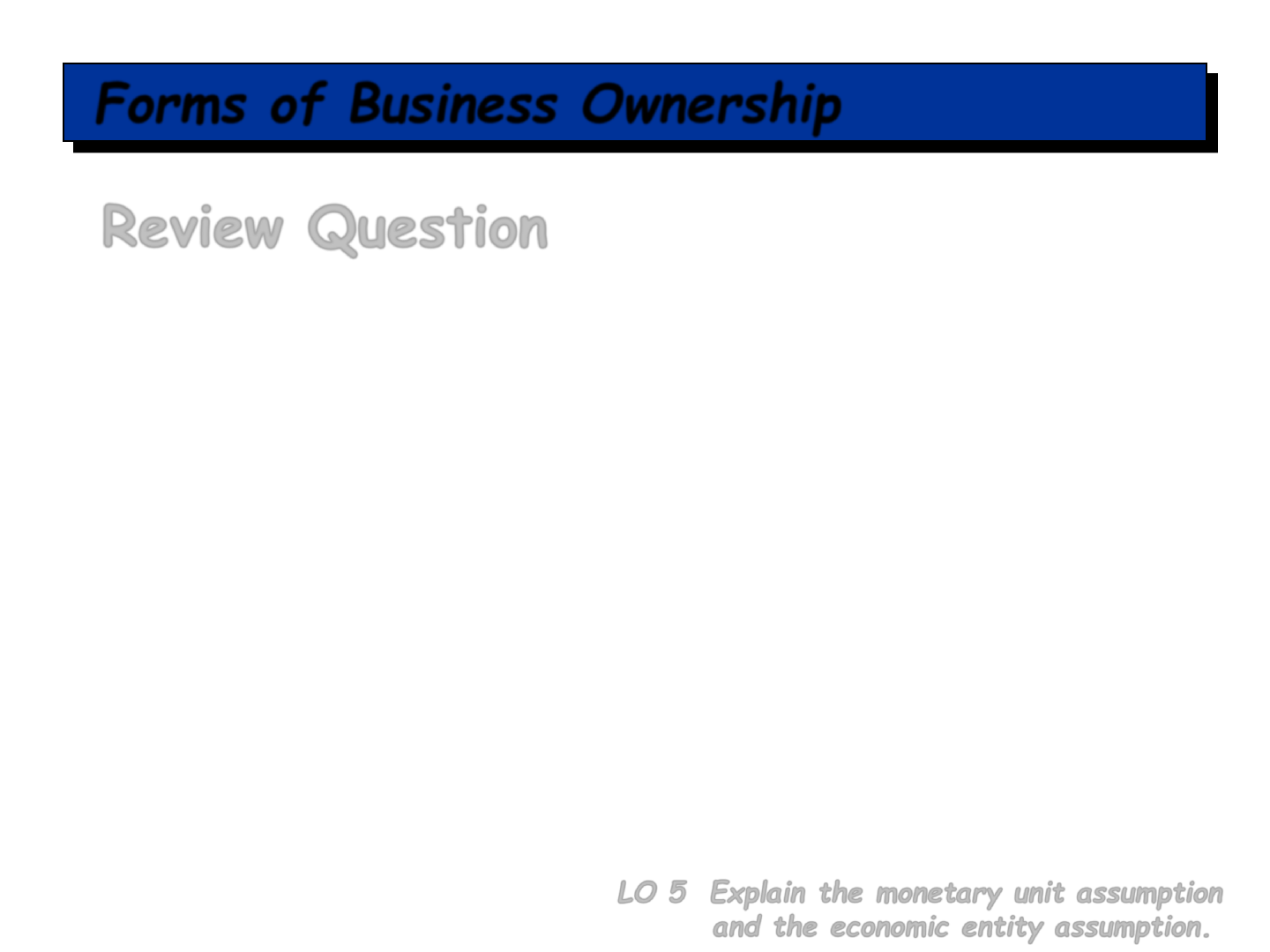
Chapter
1-12
A business organized as a separate legal entity
under state law having ownership divided into
shares of stock is a
a. proprietorship.
b. partnership.
c. corporation.
d. sole proprietorship.
LO 5 Explain the monetary unit assumption
and the economic entity assumption.
Forms of Business Ownership
Review Question
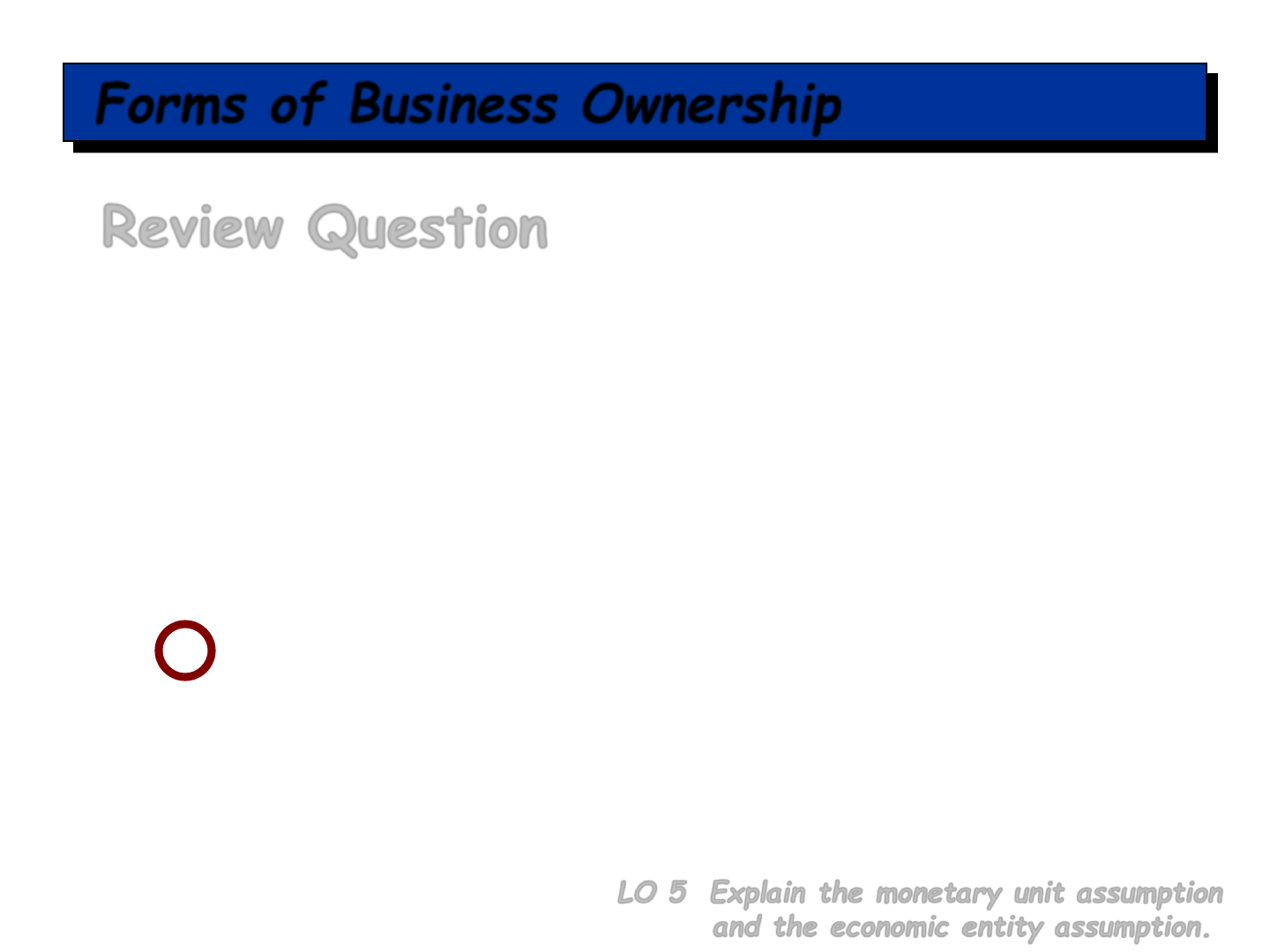
Chapter
1-13
A business organized as a separate legal entity
under state law having ownership divided into
shares of stock is a
a. proprietorship.
b. partnership.
c. corporation.
d. sole proprietorship.
LO 5 Explain the monetary unit assumption
and the economic entity assumption.
Forms of Business Ownership
Review Question
